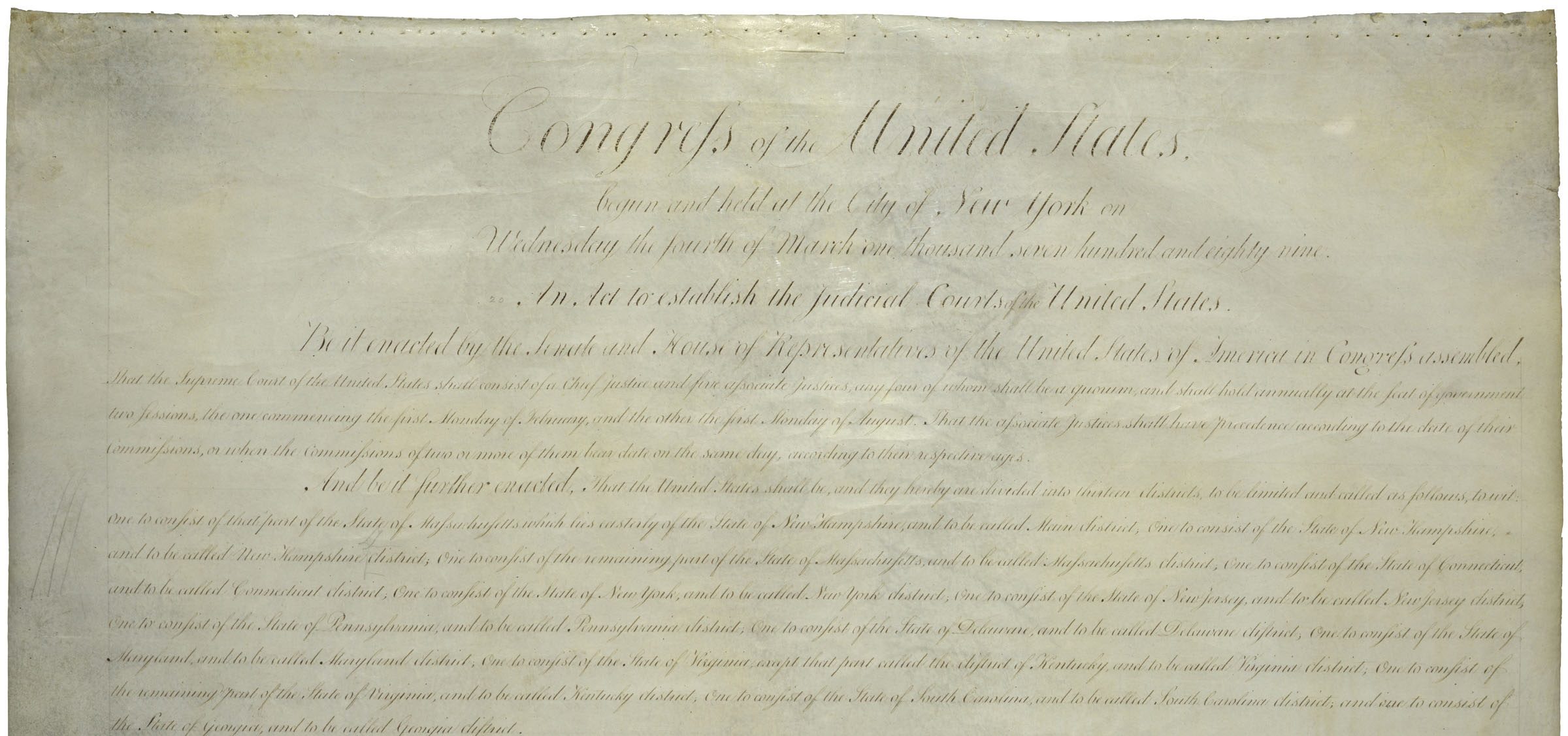In a published order, In re Space Exploration Technologies, No. 24-40103 (5th Cir. April 17, 2024), the Fifth Circuit denies en banc rehearing of a 2-1 panel order denying mandamus to vacate a district court’s decision under 28 U.S.C. § 1406(a) to transfer plaintiff SpaceX’s suit challenging the constitutionality of hearings before the National Labor Relations Board (NLRB) out to California. Six judges file a stinging dissent against the agency.
There has been widespread publicity, breaking even into mainstream media coverage, about the wont of right-leaning litigants to file lawsuits in Louisiana, Texas, and Mississippi, hoping to benefit from the presumed conservative-activist Fifth Circuit bench. This case, for instance, presents a high-profile challenge to the constitutional power of the NLRB, spearheaded by conservative champion Elon Musk (founder and CEO of SpaceX).
What has been lost in this coverage is that judges of the district courts (and on the Fifth Circuit bench itself) are themselves sharply divided about such naked forum-shopping. Not a few judges have resisted these venue choices, often based on tenuous connections to the forum, and have transferred cases away from the circuit under section 1406(a).
Fifth Circuit panels have faced multiple calls to use their extraordinary mandamus powers to reverse these transfer orders. (See the recent Split Fifth Circuit Panel Issues Mandamus to Vacate Transfer of a Suit Against CFPB from Texas to D.C., Ordered by the District Court Only After the Notice of Appeal Was Filed. See also Fifth Circuit Panel Issues Scheduling Order with Concurrence Imploring Transferee District Court in New Jersey to Return a Case to Texas.) And the Fifth Circuit has been urged to use its even-rarer en banc authority (i.e., hearing by the entire court) to reexamine transfer decisions when panels have denied relief.
Here the Fifth Circuit splits evenly on a mandamus petition from SpaceX against a transfer of its case from the Southern District of Texas to the Central District of California, thus leaving intact the transfer order. (A seventeenth member of the court, Judge Ho, did not participate . . . signaling a recusal, perhaps because he is an investor in the plaintiff.) The original panel itself split 2-1 (In re Space Exploration Technologies, Corp., 96 F.4th 733 (5th Cir. 2024) (mem.)).
While no opinion is submitted in support of the order, six judges file a dissent from denial of en banc review. (Eight judges vote in favor of rehearing, but two of the eight – Chief Judge Richman and Judge Willett – do not join the dissent.) The judges would hold that venue was fitting in the Texas court because of the impact of the NLRB’s authority on Texas employers, including Space X (which had recently moved its operations from California to Texas).
“The remedy sought by NLRB would regulate all SpaceX’s Texas employees. The conduct forming the basis of NLRB’s complaint intentionally included employees in this district. And the Charging Parties’ Open Letter that generated the complaint was received by all and responded to by some 200 Texas employees, and it disrupted SpaceX’s operations in the Southern District. These operative facts are ‘substantial’ under the [venue] statute,” 28 U.S.C. § 1391(e)(1)(B), relating to suits against federal agencies.
“Where companies with geographically widespread operations seek to challenge regulations or agency actions, an agency may now compare the ‘substantiality’ of the regulations’ or actions’ effect in the company’s chosen venue against effects in other venues. In many cases, the default venue, from the agency’s perspective, would be the District of Columbia. To the extent such maneuvers succeeded, they would wholly undercut the expansive text—and purpose—of Section 1391(e)(1)(B).”
The dissent also issues a sharp criticism of the NLRB’s counsel.
“The necessity for en banc rehearing is enhanced because of improper conduct on the part of NLRB attorneys. In their zeal to deprive this court of mandamus jurisdiction and nullify the stay of the transfer order issued by the panel, NLRB lawyers misrepresented facts to this court and have failed to acknowledge error. A transfer order takes effect only when the transferred case is actually docketed in the transferee court. Lou v. Belzberg, 834 F.2d 730, 733 (9th Cir. 1987). When questions arose whether the case had actually been transferred to the Central District of California, the attorneys attempted to persuade the Central District of California to ignore this court’s correct determination that it had retained jurisdiction. Fortunately, the Central District of California followed this court’s directive rather than government counsel’s signed notice to ignore this court’s jurisdictional determination.”
In a related order on the same day (unpublished), the original panel notes that two NLRB staff attorneys (named in the order), while perhaps not meaning to violate court rules by the above actions, “made some errors” and thus concludes “that some advice as to what is proper would be helpful to these attorneys.”
Judge Douglas dissents and would hold that there was no improper conduct. “Contrary to the majority’s suggestion, the NLRB did not ignore this court’s orders. As noted, we issued a stay, not an injunction . . . [T]he stay did not prohibit the NLRB from taking the actions taken in this case. The NLRB took responsibility in apprising both the California district court and this circuit of all the actions occurring in this case. In fact, within about two hours of learning which judge the California district court case was properly docketed with, the NLRB informed our panel of the change in docket numbers. Nothing required the NLRB to do more. Therefore, I must dissent.”
